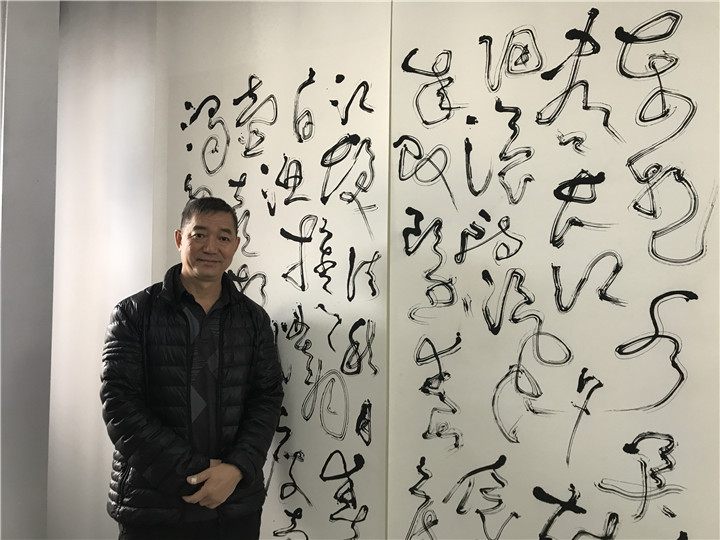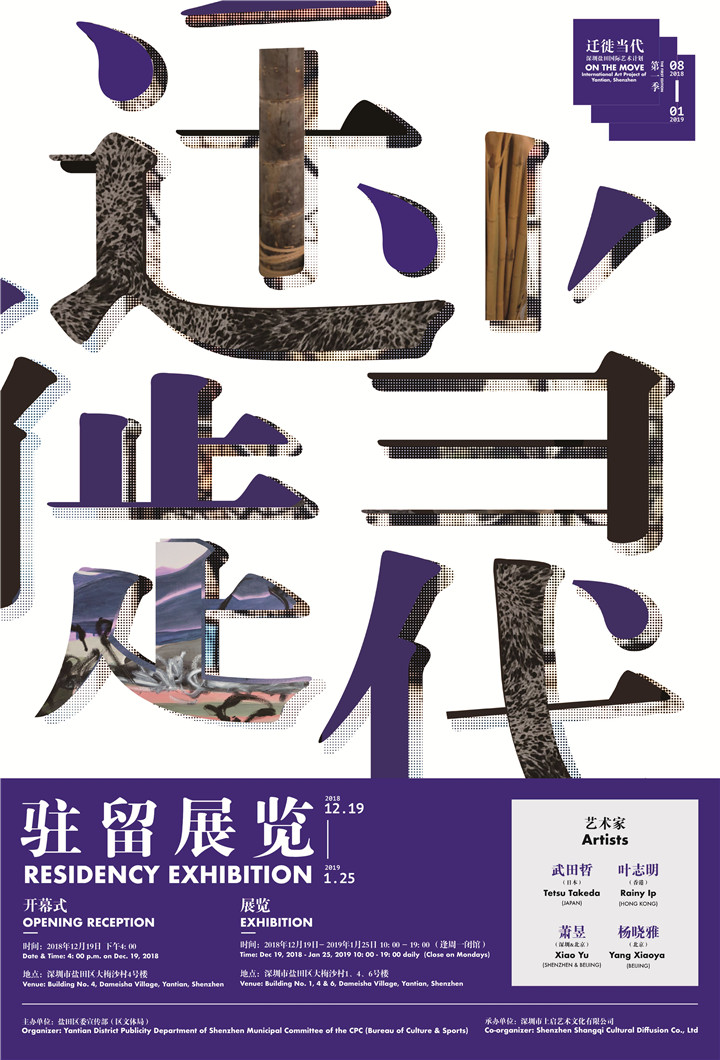Contemporary art revitalizes Dameisha
Writer: Cao Zhen | Editor: Doria Nan | From: Shenzhen Daily | Updated: 2018-12-27
If you plan to visit Dameisha soon, either for a seaside walk or for its signature roasted squabs, don’t forget to check out Dameisha Village, where four artists are exhibiting their works at the “On the Move — International Art Project of Yantian, Shenzhen” exhibition.
The four artists, Tetsu Takeda from Japan, Yang Xiaoya from Beijing, Rainy Ip from Hong Kong and Xiao Yu from Shenzhen and Beijing, have stayed in the village for three months. The exhibition is part of a two-year artists-in-residence project organized by Shangqi Art.
Since the old village was chosen to be the 2017 Bi-City Biennale of UrbanismArchitecture’s Yantian Subvenue and hosted the “Village As Kitchen” exhibition in late 2017, several buildings have been renovated into art spaces. “We will continue to do art projects in Dameisha Village,” said Zhou Min, vice chief of Yantian District, at the opening of the “On the Move” exhibition.
“In the past, when Dameisha was mentioned, visitors only thought of the beach. Now we have Dameisha Village, which is embracing art and culture. In 2019, there will be two more seasons of the artists-in-residence project, through which we hope the village will become more dynamic and interesting, attracting artists and art lovers from all over the world,” he added.
According to Yang Yong, the project organizer, they selected three buildings in the village for the exhibition halls and held workshops for children there to integrate art into the villagers’ lives. “‘On the Move’ means the artists get away from the fast pace of urban life and create their works in the peaceful environment. The project also explores a new possibility for the development of this village and inspires the villagers’ curiosity about contemporary art,” he said.
Japanese artist Takeda created a series of paintings and sculptures related to the sea because Dameisha Village reminded him of his hometown in Japan. “As I was standing on the beach and looking at the sea, I found myself unwilling to leave, being inspired to make artworks that are as simple, enormous and profound as the view in front of me. The shapes of the rocks and clouds, the conditions of the sea and the color of the sky which change at every moment are all influencing my works naturally,” he said.

Hong Kong artist Rainy Ip with his calligraphic work at Dameisha Village. Photos by Cao Zhen

A painting by Japanese artist Tetsu Takeda.
Both Takeda and Hong Kong artist Ip were grateful for the villagers’ hospitality. “Some villagers came to my studio and shook hands with me, although we had no idea what we were saying to each other. My studio was always popular among the children here,” said Takeda.
“The children’s smiles are really comforting. Store owners and migrant workers are very friendly and hardworking,” said Ip, who invited children to create Chinese-character art with sticks. Ip usually collects rusted objects and recycled wood to transform them into thoughtful works of art. His works express the poetic narrative of his personal memories, which creates an emotional resonance for viewers. For the Dameisha exhibition, he also created elegant calligraphic works and made installations to re-create the interiors of a barber shop and a migrant worker’s room he had visited in the village.
“The people here touched me deeply, so I re-created the scenarios of their lives. I often played and painted with the lovely children here, using sticks and leaves to create art. The comfort and quietness here also enabled me to be highly focused on writing calligraphy,” said Ip.
The installation of artist Xiao Yu, called “Bamboo Cage,” explores the self-exclusion or isolation of humans, while artist Yang Xiaoya’s research “The Traveling of Utopia in China” reflects her observations and thoughts on Dameisha.
Dates: Until Jan. 25, 2019
Hours: 10 a.m.-7 p.m., closed Mondays
Venue: Buildings No. 1, 4, 6, inside Dameisha Village, Yantian District (盐田区大梅沙村1、4、6号楼)
Metro: Line 2 or 5 to Huangbeiling Station (黄贝岭站), Exit D, then take bus 387 and get off at Haibin Yuchang Station (海滨浴场站)
